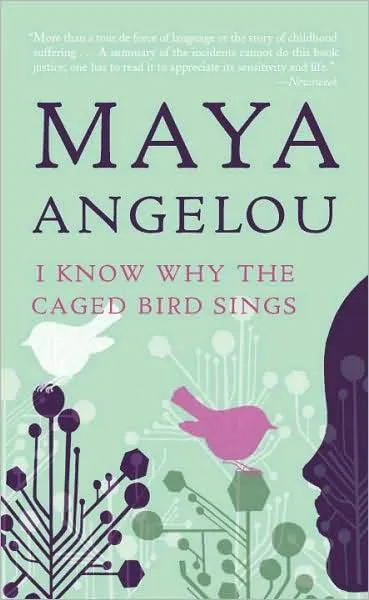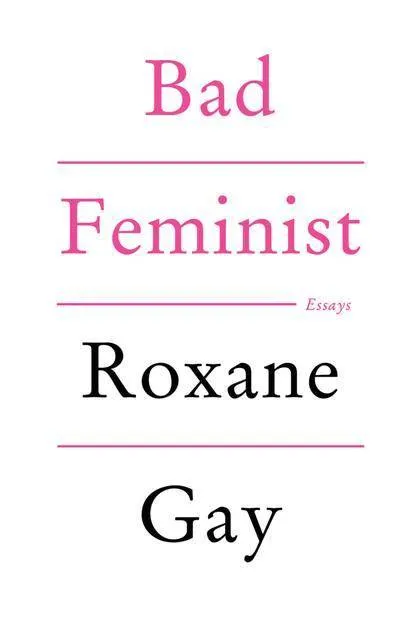
Forget #SpeakBeautiful, Speak Your Mind: A Reading List
This content contains affiliate links. When you buy through these links, we may earn an affiliate commission.
Dove’s #SpeakBeautiful campaign was one of the first things I saw online Tuesday morning.
 I can see how this all sounds like a good idea. Encouraging women to speak positively of themselves and other women, discouraging body-shaming and the “Mean Girls” phenomenon, is a worthy endeavor. I imagine that is what the organizations and celebrities supporting the #SpeakBeautiful hashtag were thinking when they got on board. Positivity can be a powerful force, and the Internet is all too often a toxic place for speech about women’s bodies.
But when I saw the promoted tweet detailing how many women were negative on Twitter in 2014, all I could see was red. Here is an organization that occasionally produces smart, feminist campaigns; #SpeakBeautiful is not one of them. The execution indicates either a deep unfamiliarity with the current state of women and Internet abuse, an unwillingness to consider the context of the campaign, or just a straight-up messaging fail.
Dove is telling women to be positive and eschew negativity on a platform that produces abuse and violent threats, like those catalogued by Feminist Frequency, on an hourly basis. They’re telling women to #SpeakBeautiful on a platform whose CEO recently acknowledged that the company has left women to suffer trolling and abuse basically unchecked. Telling women to be nicer on Twitter will not make it a safer space for them.
And if the intent is to encourage women to love our bodies and our selves more, then why do only some of their promo images mention it? The focus I saw was solidly on speech in general. At best, this is tone deaf; at worst, it’s the voice of the patriarchy telling women that if they don’t have anything nice to say, they shouldn’t say anything at all.
So what to do with all this frustration and anger? Build a reading list, naturally. Here are some of the books that remind me that being an outspoken woman is not only good, but necessary. That we don’t have to speak nicely to speak our minds. That our words are both important and necessary. And that we can and should love ourselves, warts and all.
I can see how this all sounds like a good idea. Encouraging women to speak positively of themselves and other women, discouraging body-shaming and the “Mean Girls” phenomenon, is a worthy endeavor. I imagine that is what the organizations and celebrities supporting the #SpeakBeautiful hashtag were thinking when they got on board. Positivity can be a powerful force, and the Internet is all too often a toxic place for speech about women’s bodies.
But when I saw the promoted tweet detailing how many women were negative on Twitter in 2014, all I could see was red. Here is an organization that occasionally produces smart, feminist campaigns; #SpeakBeautiful is not one of them. The execution indicates either a deep unfamiliarity with the current state of women and Internet abuse, an unwillingness to consider the context of the campaign, or just a straight-up messaging fail.
Dove is telling women to be positive and eschew negativity on a platform that produces abuse and violent threats, like those catalogued by Feminist Frequency, on an hourly basis. They’re telling women to #SpeakBeautiful on a platform whose CEO recently acknowledged that the company has left women to suffer trolling and abuse basically unchecked. Telling women to be nicer on Twitter will not make it a safer space for them.
And if the intent is to encourage women to love our bodies and our selves more, then why do only some of their promo images mention it? The focus I saw was solidly on speech in general. At best, this is tone deaf; at worst, it’s the voice of the patriarchy telling women that if they don’t have anything nice to say, they shouldn’t say anything at all.
So what to do with all this frustration and anger? Build a reading list, naturally. Here are some of the books that remind me that being an outspoken woman is not only good, but necessary. That we don’t have to speak nicely to speak our minds. That our words are both important and necessary. And that we can and should love ourselves, warts and all.
 I Know Why The Caged Bird Sings by Maya Angelou
The late, great poet and writer gave voice to more than just her own story when she wrote her autobiographies. This remains one of the most important books I’ve read, in school or out of it, and is a reminder that difficult and dark truths can have their own beauty in expression.
I Know Why The Caged Bird Sings by Maya Angelou
The late, great poet and writer gave voice to more than just her own story when she wrote her autobiographies. This remains one of the most important books I’ve read, in school or out of it, and is a reminder that difficult and dark truths can have their own beauty in expression.
 Unspeakable Things: Sex, Lies, and Revolution by Laurie Penny
In her dissection of modern feminism, Penny set out to speak the unspeakable. Unspeakable Things tackles some of the very issues that Dove seems to be oblivious of; if you need company for your rage, here it is.
Unspeakable Things: Sex, Lies, and Revolution by Laurie Penny
In her dissection of modern feminism, Penny set out to speak the unspeakable. Unspeakable Things tackles some of the very issues that Dove seems to be oblivious of; if you need company for your rage, here it is.
 Bad Feminist by Roxane Gay
In essay after essay, Gay reminds us that we are not only feminists but human beings with tastes, habits, and thoughts — some of which may make us feel like we’re failing as political beings. If you’re both in love and in frustration with problematic pop-culture, Gay wants you to know that that’s not only normal but valuable, and worth talking about.
Bad Feminist by Roxane Gay
In essay after essay, Gay reminds us that we are not only feminists but human beings with tastes, habits, and thoughts — some of which may make us feel like we’re failing as political beings. If you’re both in love and in frustration with problematic pop-culture, Gay wants you to know that that’s not only normal but valuable, and worth talking about.
 The Empathy Exams by Leslie Jamison
As Azar Nafisi said in The Republic of Imagination, “All violence is based on blindness, on a lack of reflection and empathy.” In her excellent essay collection, Jamison sets out to chart the limits of empathy. If you want to explore the way we talk about pain, its performance and its realities, and our own limits as humane beings, there are few better places to start.
The Empathy Exams by Leslie Jamison
As Azar Nafisi said in The Republic of Imagination, “All violence is based on blindness, on a lack of reflection and empathy.” In her excellent essay collection, Jamison sets out to chart the limits of empathy. If you want to explore the way we talk about pain, its performance and its realities, and our own limits as humane beings, there are few better places to start.
 Bitch Planet #3 by Kelly Sue DeConnick, Valentine De Landro
Whether or not you’re a comics fan, or have read issues 1 and 2, get yourself a copy of Bitch Planet #3. Penny Rolle lives what Dove is trying to sell — complete acceptance and love of ourselves, no matter how the outside world perceives us. And the bonus essay from Megan Carpentier calls on us to “love your weirdest, ugliest self more deeply than you’re supposedly allowed to, and demand that others either love her or fuck off.” Now that’s beautiful.
____________________
Get your Read Harder mug on.
Bitch Planet #3 by Kelly Sue DeConnick, Valentine De Landro
Whether or not you’re a comics fan, or have read issues 1 and 2, get yourself a copy of Bitch Planet #3. Penny Rolle lives what Dove is trying to sell — complete acceptance and love of ourselves, no matter how the outside world perceives us. And the bonus essay from Megan Carpentier calls on us to “love your weirdest, ugliest self more deeply than you’re supposedly allowed to, and demand that others either love her or fuck off.” Now that’s beautiful.
____________________
Get your Read Harder mug on.

 I can see how this all sounds like a good idea. Encouraging women to speak positively of themselves and other women, discouraging body-shaming and the “Mean Girls” phenomenon, is a worthy endeavor. I imagine that is what the organizations and celebrities supporting the #SpeakBeautiful hashtag were thinking when they got on board. Positivity can be a powerful force, and the Internet is all too often a toxic place for speech about women’s bodies.
But when I saw the promoted tweet detailing how many women were negative on Twitter in 2014, all I could see was red. Here is an organization that occasionally produces smart, feminist campaigns; #SpeakBeautiful is not one of them. The execution indicates either a deep unfamiliarity with the current state of women and Internet abuse, an unwillingness to consider the context of the campaign, or just a straight-up messaging fail.
Dove is telling women to be positive and eschew negativity on a platform that produces abuse and violent threats, like those catalogued by Feminist Frequency, on an hourly basis. They’re telling women to #SpeakBeautiful on a platform whose CEO recently acknowledged that the company has left women to suffer trolling and abuse basically unchecked. Telling women to be nicer on Twitter will not make it a safer space for them.
And if the intent is to encourage women to love our bodies and our selves more, then why do only some of their promo images mention it? The focus I saw was solidly on speech in general. At best, this is tone deaf; at worst, it’s the voice of the patriarchy telling women that if they don’t have anything nice to say, they shouldn’t say anything at all.
So what to do with all this frustration and anger? Build a reading list, naturally. Here are some of the books that remind me that being an outspoken woman is not only good, but necessary. That we don’t have to speak nicely to speak our minds. That our words are both important and necessary. And that we can and should love ourselves, warts and all.
I can see how this all sounds like a good idea. Encouraging women to speak positively of themselves and other women, discouraging body-shaming and the “Mean Girls” phenomenon, is a worthy endeavor. I imagine that is what the organizations and celebrities supporting the #SpeakBeautiful hashtag were thinking when they got on board. Positivity can be a powerful force, and the Internet is all too often a toxic place for speech about women’s bodies.
But when I saw the promoted tweet detailing how many women were negative on Twitter in 2014, all I could see was red. Here is an organization that occasionally produces smart, feminist campaigns; #SpeakBeautiful is not one of them. The execution indicates either a deep unfamiliarity with the current state of women and Internet abuse, an unwillingness to consider the context of the campaign, or just a straight-up messaging fail.
Dove is telling women to be positive and eschew negativity on a platform that produces abuse and violent threats, like those catalogued by Feminist Frequency, on an hourly basis. They’re telling women to #SpeakBeautiful on a platform whose CEO recently acknowledged that the company has left women to suffer trolling and abuse basically unchecked. Telling women to be nicer on Twitter will not make it a safer space for them.
And if the intent is to encourage women to love our bodies and our selves more, then why do only some of their promo images mention it? The focus I saw was solidly on speech in general. At best, this is tone deaf; at worst, it’s the voice of the patriarchy telling women that if they don’t have anything nice to say, they shouldn’t say anything at all.
So what to do with all this frustration and anger? Build a reading list, naturally. Here are some of the books that remind me that being an outspoken woman is not only good, but necessary. That we don’t have to speak nicely to speak our minds. That our words are both important and necessary. And that we can and should love ourselves, warts and all.
 I Know Why The Caged Bird Sings by Maya Angelou
The late, great poet and writer gave voice to more than just her own story when she wrote her autobiographies. This remains one of the most important books I’ve read, in school or out of it, and is a reminder that difficult and dark truths can have their own beauty in expression.
I Know Why The Caged Bird Sings by Maya Angelou
The late, great poet and writer gave voice to more than just her own story when she wrote her autobiographies. This remains one of the most important books I’ve read, in school or out of it, and is a reminder that difficult and dark truths can have their own beauty in expression.
 Unspeakable Things: Sex, Lies, and Revolution by Laurie Penny
In her dissection of modern feminism, Penny set out to speak the unspeakable. Unspeakable Things tackles some of the very issues that Dove seems to be oblivious of; if you need company for your rage, here it is.
Unspeakable Things: Sex, Lies, and Revolution by Laurie Penny
In her dissection of modern feminism, Penny set out to speak the unspeakable. Unspeakable Things tackles some of the very issues that Dove seems to be oblivious of; if you need company for your rage, here it is.
 Bad Feminist by Roxane Gay
In essay after essay, Gay reminds us that we are not only feminists but human beings with tastes, habits, and thoughts — some of which may make us feel like we’re failing as political beings. If you’re both in love and in frustration with problematic pop-culture, Gay wants you to know that that’s not only normal but valuable, and worth talking about.
Bad Feminist by Roxane Gay
In essay after essay, Gay reminds us that we are not only feminists but human beings with tastes, habits, and thoughts — some of which may make us feel like we’re failing as political beings. If you’re both in love and in frustration with problematic pop-culture, Gay wants you to know that that’s not only normal but valuable, and worth talking about.
 The Empathy Exams by Leslie Jamison
As Azar Nafisi said in The Republic of Imagination, “All violence is based on blindness, on a lack of reflection and empathy.” In her excellent essay collection, Jamison sets out to chart the limits of empathy. If you want to explore the way we talk about pain, its performance and its realities, and our own limits as humane beings, there are few better places to start.
The Empathy Exams by Leslie Jamison
As Azar Nafisi said in The Republic of Imagination, “All violence is based on blindness, on a lack of reflection and empathy.” In her excellent essay collection, Jamison sets out to chart the limits of empathy. If you want to explore the way we talk about pain, its performance and its realities, and our own limits as humane beings, there are few better places to start.
 Bitch Planet #3 by Kelly Sue DeConnick, Valentine De Landro
Whether or not you’re a comics fan, or have read issues 1 and 2, get yourself a copy of Bitch Planet #3. Penny Rolle lives what Dove is trying to sell — complete acceptance and love of ourselves, no matter how the outside world perceives us. And the bonus essay from Megan Carpentier calls on us to “love your weirdest, ugliest self more deeply than you’re supposedly allowed to, and demand that others either love her or fuck off.” Now that’s beautiful.
____________________
Get your Read Harder mug on.
Bitch Planet #3 by Kelly Sue DeConnick, Valentine De Landro
Whether or not you’re a comics fan, or have read issues 1 and 2, get yourself a copy of Bitch Planet #3. Penny Rolle lives what Dove is trying to sell — complete acceptance and love of ourselves, no matter how the outside world perceives us. And the bonus essay from Megan Carpentier calls on us to “love your weirdest, ugliest self more deeply than you’re supposedly allowed to, and demand that others either love her or fuck off.” Now that’s beautiful.
____________________
Get your Read Harder mug on.












